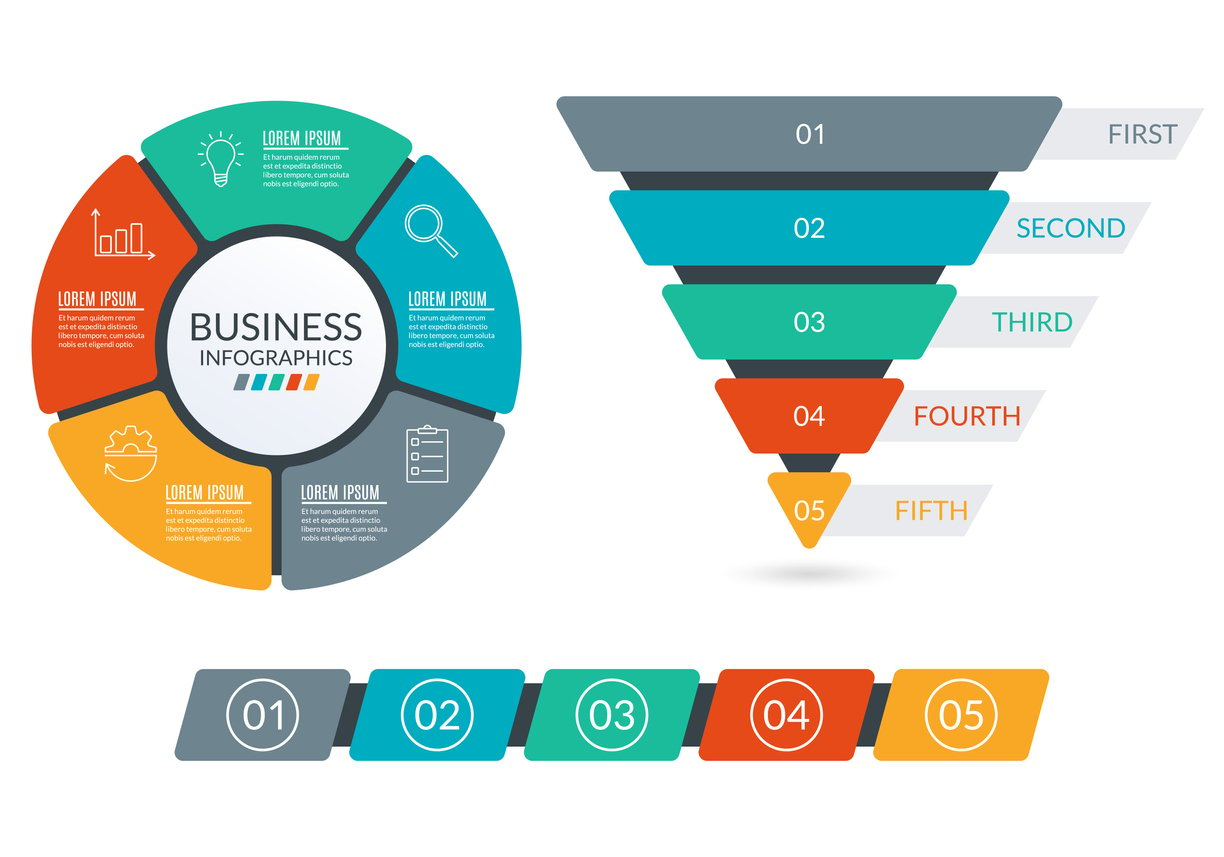
How to Generate Leads for Business [with the help of a CRM]
 Updated on
Updated on
 By Carlos Correa
By Carlos Correa
Carlos Correa
Carlos has been involved in the sales space for well over ten years. He began in the insurance space as an individual sales agent, managing teams as s...
learn more
Carlos Correa
Carlos has been involved in the sales space for well over ten years. He began in the insurance space as an individual sales agent, managing teams as s...
Table of Contents
Table of Contents
Wondering what the best way is to generate leads?
It's a timeless question that marketers and salespeople ask themselves all the time. Generating sales leads is not easy, but the good news is that it's absolutely possible to be successful, no matter what industry you're in.
Sound good? Read on!
Introduction to Generating Sales Leads
There are many ways to generate leads online, including content marketing, advertising, social media, discount codes, and email newsletters. The purpose of lead generation is to build awareness of your brand and convert interest into paying customers. Here's a quick overview of sales leads and how to qualify them:
- Types of Leads: Focus on sales leads—prospects who've expressed interest in your product or service and are ready for follow-up by a sales rep.
- What is a Sales Lead? Sales leads are individuals who demonstrate a readiness to learn more or buy, such as:
- Filling out a contact form on your website
- Messaging you through social media (e.g., inquiring about a real estate listing on Facebook)
- Clicking a Google ad and submitting a form about a product
- Lead Qualification: Determine lead readiness by monitoring engagement. For instance:
- Leads who sign up for a discount code may not be sales-ready.
- Leads who respond to direct business text messages or engage actively are likely ready for sales nurturing.
Generating sales leads is all about moving potential customers to a point where they're ready to connect with your sales team.
Lead Generation Tactics for Different Industries

Sure, we can talk about lead generation in a general sense, but the truth is that lead generation can be different for different industries. Sometimes these are called lead generation niche markets or niche industries since they can have specific ways that customers behave that are different from other industries. It is important to know these differences if you want to break into those markets and successfully generate leads.
How to Generate Insurance Leads
The insurance market offers countless opportunities to target potential leads effectively. Here's how to focus your efforts:
- Narrow Your Niche: Target leads based on your specific offerings. For example, if you sell life insurance, focus your marketing and outreach on individuals actively seeking life insurance. Casting too wide a net may result in fewer qualified leads.
- Leverage LinkedIn: Create a professional, content-rich LinkedIn page to attract qualified leads. Network with other insurance professionals to exchange referrals. For example, refer clients needing health insurance to a trusted contact if you specialize in life insurance.
- Expand Offline Networking: Attend community events, trade shows, and industry conferences to meet prospects and build professional connections.
By focusing on the right audience and building strong networks, you can generate high-quality insurance leads.
How to Generate Leads for Mortgage and Real Estate
Generating leads in real estate requires targeting your specific niche and leveraging effective strategies. Whether you're a real estate agent or mortgage broker, here are actionable ways to attract leads:
- Network with Real Estate Professionals: Attend community events and network with locals. Build connections in the neighborhoods you serve, and encourage family and friends to refer you to potential clients.
- Leverage Social Media: Again, use LinkedIn to connect with industry professionals and showcase expertise. Then, promote your services on platforms like Facebook Marketplace to attract buyers.
- Capitalize on Online Search Trends: Based on research, 44% of buyers start their property search online, and 11% research the home-buying process before contacting a realtor. Therefore, ensure your website is both user-friendly and mobile-friendly, as 93% of prospective buyers go to an online website, and 73% of buyers use mobile or tablet apps for real estate searches.
A strong online presence, combined with strategic networking and social media use, is key to generating leads in the competitive real estate market.
How to Generate Leads for the Legal Industry

Generating leads in the legal industry requires targeted strategies to connect with potential clients effectively. Here's how to do it:
- Leverage SEO-Optimized Content: 64% of people seeking legal advice use search engines. Therefore, create a user-friendly website rich with relevant content to attract these leads. Publish professional blogs that explain complex legal topics in simple language to improve search engine rankings and engage potential clients. Also, consider hiring a copywriter to ensure legal topics are accessible to your audience.
- Build an Online Review Presence: Claim your business on platforms like Google Business Profile and actively manage your profile. Encourage satisfied clients to leave positive reviews on platforms like Google and Yelp. Additionally, respond professionally to all reviews—addressing negative ones shows accountability and builds trust.
These steps not only improve visibility but also build credibility, helping you generate more leads for your legal services.
How to Generate Leads for the Healthcare or Medical Industries
Lead generation in the healthcare sector requires tailored strategies to attract qualified prospects. Whether you're a small dental office or a medical equipment supplier, here's how to generate leads effectively:
- Define Your Healthcare Niche: Identify your target audience based on your offerings. For example, target dentists if selling dental equipment or hospital buyers for PPE. It's important to tailor your marketing efforts to focus on specific healthcare professionals or facilities.
- Demonstrate Expertise Through Content: Use content to build trust and credibility. You can achieve this by publishing SEO-optimized blogs that address industry pain points, and by sharing whitepapers, case studies, and webinars that showcase your expertise. Lastly, highlight any certifications or published studies to establish authority.
- Leverage Digital Marketing Tools: Utilize platforms like Google Ads and LinkedIn to reach specific healthcare professionals. Optimize your website for local SEO to attract nearby businesses, especially for small practices.
By focusing on your niche and showcasing expertise in the health care industry, you can generate more leads in the healthcare industry and position yourself as a trusted partner.
How to Generate Leads for Small Business

Generating leads for small businesses requires a mix of digital strategies and local engagement. Here's how to do it effectively:
- Optimize for Local SEO
- Claim your business listings on platforms like Google Business Profile and Yelp.
- Use keywords like “Italian restaurants near me” in title tags and meta descriptions.
- Ensure your website is mobile-friendly and easy to navigate.
- Highlight your local online presence—over 60% of consumers prefer to shop both online and offline.
- Leverage Social Media
- Create and maintain active social media profiles for your business.
- Share consistent, engaging content tailored to your audience.
- Link your social media accounts to your website and business listings to improve visibility.
Focus on these actionable steps to attract more leads and build strong connections with your local and online audience.
Lead Generation Strategies for Your Business
Lead generation involves identifying your target audience, showcasing your product or service as the solution to their problem, and driving conversions. Below are some strategies to generate leads, categorized for various approaches:
|
Lead Generation Method |
Key Actions |
|
Email Leads |
|
|
Cold Calling |
|
|
Without Cold Calling |
|
|
Online |
|
|
Online (Free) |
|
How to Generate Email Leads
There are a few basic steps to generating email leads, regardless of the size of your business:
- Build and Segment Your Email List: Once you've gathered a number of email addresses from leads, you can segment them by location, industry, purchase history, email open rate, etc. A good tip is to integrate your email with a CRM (Customer Relationship Management) system. Check out our post on the best CRM systems if you want some suggestions on ones that will work for your business.
- Use Simple, Responsive Email Designs: Ensure emails work across devices and clients.
- Include a Clear Call-To-Action: Direct leads to take the next step, like purchasing or learning more.
How to Generate Leads via Cold Calling

Cold calling can be difficult, but here are a few simple steps to do in advance to help make calls easier:
- Perfect Your Introduction and How You Deliver It: Avoid overwhelming leads; prepare scripts to guide the conversation.
- Connect With the Lead Before Delivering Your Pitch: Use the information you have about your lead to find creative ways to connect with them. Asking relevant questions or making small talk about the weather is just a couple of ideas.
- Focus on Your USP (Unique Selling Point). At some point, your lead will want you to understand the reason why you're calling. This is where you can highlight your USP, as that will be the most effective way to show your lead that you understand their industry, the problems that they are facing, and/or how your product or service will help them.
How to Generate Leads Without Cold Calling
Cold calling is one way to generate leads, but there are a plethora of options other than cold calling you can use instead:
- Network Online: Social media, email, Facebook groups, and forums like Reddit are great ways to network online.
- Guest Blogging: If you can write an article for a website, blog, or publication that your customers are known to read, it's a great way to link back to your own website and establish authority in your space.
- Offer Incentives for Customer Referrals: If a customer clearly likes your service or product, there's an opportunity for you to give them an incentive to introduce others to your product or service for you. Oftentimes, a good discount, monetary offer, or free gift is enough to get a steady flow of referrals.
How to Generate Leads Online

There are a few easy ways to generate leads online:
- Use Paid Advertising: Platforms like Google and Facebook are powerhouses when it comes to online advertising. Though you might have to pay to play, paid advertising is a quick and relatively easy way to gather leads.
- Use a CRM: Investing in a CRM like Ringy can help you generate leads through sales pipelines, location-based campaigns, and more.
- Online PR (Public Relations): While it is an investment, submitting press releases to online PR sites exposes your business to a wide audience, driving brand awareness and possibly getting you leads.
How to Generate Leads Online for Free
Here, you can use the following strategies:
- Social Media: Social media is a great way to connect with leads on a more personal level through community engagement or content creation, which helps nurture leads into buyers.
- Email Marketing: Email has always been an effective way to connect with leads, regardless of industry. Aside from the cost of an email marketing program (which is recommended if you're sending a ton of emails), you can manage and connect with leads whenever you want through email.
- Content Marketing: Content marketing is mentioned a lot in this article, but it really is a great way to generate leads online (for free). If you optimize your content for both search engines and users, you're sure to generate leads over time.
Benefits of a CRM for Lead Generation
A CRM system enhances lead generation by streamlining processes and improving customer relationships. Here's a look at some of the key benefits of a CRM for lead generation:
|
Benefit |
Description |
|
Efficiency |
Automates lead tracking, scoring, and follow-ups, saving time and reducing manual tasks. |
|
Practicality |
Centralizes data, providing actionable insights and improving collaboration across teams. |
|
Customer Retention |
Tracks customer interactions, enabling personalized follow-ups and nurturing long-term relationships. |
|
Cost Management |
Reduces unnecessary spending by focusing resources on high-priority leads and optimizing campaigns. |
How a CRM Can Support Lead Generation
- Efficiency: A CRM automates lead tracking, scoring, and follow-ups, ensuring no opportunities are missed. Features like automated workflows save time and increase productivity.
- Practicality: Centralized customer data helps identify trends, segment leads, and make informed decisions. Team members can collaborate seamlessly using shared access to lead information.
- Customer Retention: CRMs enable businesses to personalize communication-based on previous interactions. This strengthens relationships, builds loyalty, and improves conversion rates.
- Cost Management: By analyzing lead quality and campaign performance, CRMs help allocate resources effectively. Businesses can focus on strategies that yield the highest ROI, reducing unnecessary expenses.
Using a CRM like Ringy can make lead generation more effective, whether you're learning how to generate leads for your business, focusing on B2B sales, or exploring new ways to nurture customer relationships.
3 Tips on How to Generate Leads with the help of a CRM
Sure, a CRM manages and keeps track of leads, but you're probably wondering how you can generate leads with a CRM. Here are three key tips:
Marketing automation
Anyone using a CRM will tell you that CRM automation is the best thing since sliced bread. A customer left your website with a product in their cart? Your CRM can send them an automated reminder email to check out. A customer subscribed to text message alerts? Schedule them to be sent out automatically, and even set responses to keywords or phrases if your customer responds.
Social media integration
Managing all your social media accounts on each native platform is a painstaking process. Thankfully with a CRM all that is completely unnecessary. A CRM with social media integration not only allows you to easily manage your different accounts, it usually has features like an inbox where all private messages get fed to, making it much easier to quickly respond to customers. In addition, most social media CRM integrations have posting capabilities, tracking, analytics, and more.
Lead Data Management
Once you have tons of leads sitting in your CRM, you'll have to manage them somehow. Lead prioritization is so important in every type of business. What happens when a lead changes their contact information, has incomplete or duplicate information, or simply no longer wants to do business with you? A lead data cleansing protocol through your CRM is a lifesaver for keeping your lead lists clean and tidy over time.
Final Thoughts on Generating Leads

Regardless of whether you're a real estate agent, mortgage broker, insurance salesperson, or another profession, the basic process for generating leads is similar: bring awareness to your target audience and nurture those leads into paying customers.
Content marketing, email marketing, advertising, social media, and CRM systems are just examples of tools that help marketers and salespeople turn a prospect into a lead, and then into a paying customer.
Depending on your industry, the way that you target and capture leads is going to be slightly different, as target audiences interact and engage with online content in different ways.
The earlier you adopt a CRM to help you manage, track, and contact leads, the better off your business will be. If you're still wondering what CRM system would work best for your business, check out our best CRM for streamlining your sales process article, alongside our best CRM for small business guide.

Skyrocket your sales with the CRM that does it all.
Calling? Check. SMS? Check. Automation and AI? Check. Effortlessly keep in touch with your customers and boost your revenue without limits.

Take your sales to new heights with Ringy.
Sales in a slump? Ringy gives you the tools and flexibility you need to capture leads, engage with them, and turn them into customers.
Subscribe to Our Blog
Enter your email to get the latest updates sent straight to your inbox!
Categories
Related Articles




































































































